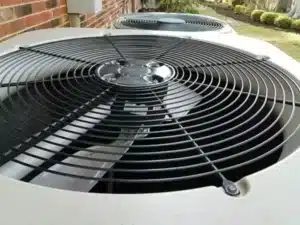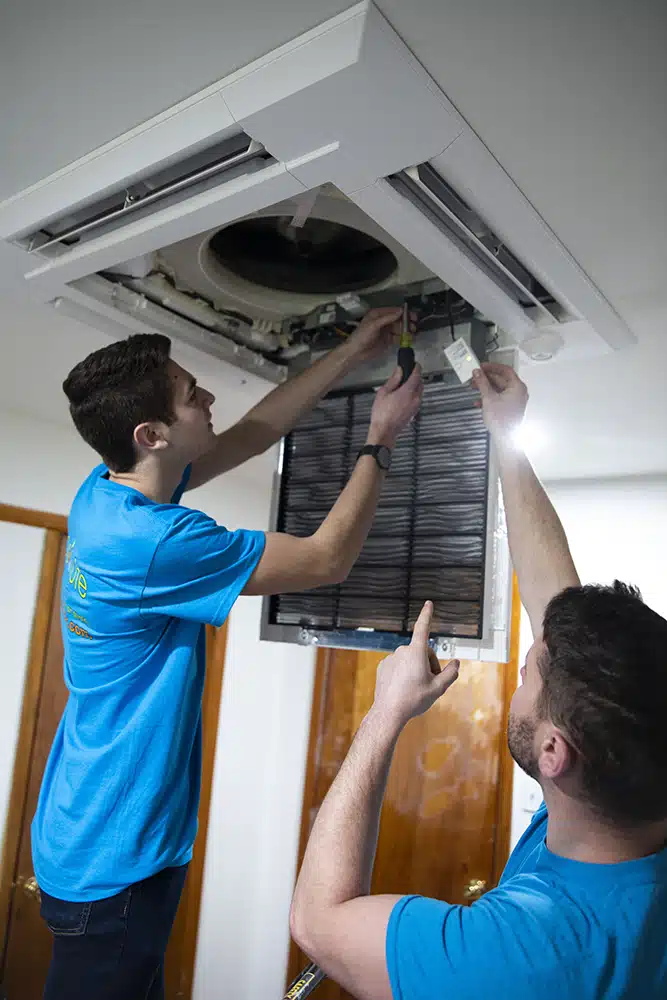Everything You Need To Know About AC Fan Speed Adjustments
Contact the most reliable local HVAC technicians in the Morgantown, WV Area!
When you want superior comfort and optimum levels of efficiency, buying the best air conditioner for your Morgantown, West Virginia home is only the first step. Unless they’re properly installed, even the most efficient air conditioners are guaranteed to underperform. One large part of a proper AC installation is choosing the right fan speed. When AC fan speeds are too high, multiple problems can occur. Read on to find out why having your AC fan speed adjusted may be a good idea.

Common Misconceptions About AC Fan Speeds
With your air conditioner, you might think that a fast-moving fan would produce more cold air. After all, turning up the speed on box fans, standing fans, and ceiling fans certainly does the trick. In reality, however, air conditioners are complex systems that require everything to work seamlessly together. When an AC unit’s fan speed is too high, everything else is affected. This includes your air conditioner’s ability to regulate indoor humidity and its ability to produce air that’s actually cold.
Another common misconception about air conditioner fan speeds is that AC units arrive already at the perfect fan speed setting. Most AC fans are set to move air at 400 cubic feet per minute (CFM). This is the standard fan setting. It works well for some households, but it doesn’t work well in others. Optimum fan settings are determined by the size and capacity of the AC unit, the nature of the living environment, the amount of humidity in the indoor air, and many other factors. When HVAC companies complete AC installations correctly, they adjust fan speeds to reflect these factors.
It’s also important to note that a static fan setting might not work for your household forever. Even if your AC fan was set correctly at the time of installation, changes in your household dynamics, home insulation, and daily activities could make it necessary to have this adjusted. Even the normal and inescapable aging of your home cooling equipment can make it necessary to adjust your fan speed from time to time.
Faster Fan Speeds Can Lead To Shorter Cooling Cycles And Warmer Indoor Air
One of the most common signs of an excessively fast fan speed is having only moderately cool air coming out of your HVAC air vents. Unfortunately, most homeowners don’t think much of it. As long as their air conditioners are humming away and their indoor temperatures are steadily dropping, they’re rarely worried about cooling system problems.
With a brand-new air conditioner or an older air conditioner that’s been well-maintained, the air that comes out of your HVAC air vents should always feel cold when the AC is on. Unfortunately, when air is pushed out of an AC system too swiftly, it doesn’t have much time to spend on the evaporator coil. By slowing your fan speed down, you can slow the cooling cycle down as well. This will give the refrigerant in your air conditioner’s evaporator coil more time to absorb heat. This way, when conditioned air is distributed throughout your home, it will be noticeably colder. Not only will this increase your home comfort, but it will also lower your home energy bill by reducing the amount of work that your air conditioner has to do.
A Fast-Moving Fan Can Cause Humidity Problems
Another common indication of an incorrect fan speed is having too much moisture in your home. If you have a big, bustling household, it’s easy to contribute increases in indoor humidity to hot steamy showers, cooking activities, and the general movements of residents. You may even be tempted to rush out and purchase a dehumidifier.
However, one of the primary jobs of your air conditioner is to regulate indoor humidity. If it does its job well, secondary equipment for regulating humidity may not be necessary. Not only does a fast-moving AC fan force air over an air conditioner’s evaporator coil too quickly for it to actually get cold, but it also shortens the cooling cycle. This limits your air conditioner’s ability to remove excess moisture. Before it has the chance to do so, the cooling cycle ends and the AC system cycles off. Lowering your AC unit’s fan speed could provide a quick and cost-effective solution to the problem.
Why Standard Fan Speeds Aren’t Always Right
Whether by your HVAC contractor, your power company, or an energy efficiency expert, you’ve probably been coached on creating a well-insulated and airtight living environment. The goal of these efforts is to prevent the loss of conditioned air so that you aren’t spending money on energy that your household isn’t actually benefiting from. Many homeowners have upgraded their windows to triple and even quadruple-pane options. They’ve used caulk or other materials to seal up air leaks, and they’ve added more insulation or invested in insulation with higher R-values.
All of these things are good. They’re good for the environment and they’re good for your wallet. However, they do have an impact on your AC system. With a well-sealed and properly insulated home, your air conditioner doesn’t have to work as hard. Your cooling demand decreases. It doesn’t take much to cool down an energy-efficient home, and it takes even less to keep it that way. This is often what leads to shorter cooling cycles.
It is also why your HVAC contractor should carefully consider your living environment before establishing your fan speed. In a home that’s airtight, fan speeds should be lowered to extend the cooling cycle. This will prevent problems with humidity control and reduce stress on the AC system.
Fast-Moving Air Can Wreak Havoc On Your HVAC Air Ducts
Fast-moving air can be hard on your HVAC system’s ductwork. This is especially true if your AC fan speed is excessively high all of the time. Normal actions that building residents might take will have a much more significant impact on the health of your cooling equipment as well. For instance, if one person decides that they’re getting too much cold air in their room and partially or fully closes an HVAC air vent, air pressure will build up in your ductwork at an accelerated rate.
Although closing HVAC air vents always causes increases in air pressure within HVAC ducting, these increases become incredibly detrimental when fan speeds are high. This is how aging ductwork develops rips, tears, and other damages that lower the efficiency of entire cooling systems, reduce indoor air quality, and cause home energy bills to soar.
Shorter, More Frequent Cooling Cycles

If you don’t have a well-insulated and airtight home but still have shorter cooling cycles due to an incorrect fan speed, your air conditioner may frequently cycle off and on. Quick bursts of relatively cool air will cause your thermostat to register its preferred temperature fast, and then signal the AC to turn off. Within a relatively short period of time, air loss and other efficiency concerns will cause the home to heat back up again. This situation accelerates wear on both air conditioners and the ductwork that supports them.
At the end of the day, you want sufficiently long cooling cycles that give your air conditioner plenty of time to regulate humidity and that keep the air on the evaporator coil long enough to get cold. If you aren’t getting this, then you aren’t enjoying the benefits of having an efficient and well-maintained air conditioner.
At Absolute Heating & Air, we’re committed to providing fast, friendly, and reliable cooling and heating services to residents of Morgantown, West Virginia and the surrounding area. Homeowners can also turn to us for duct cleaning services, healthy air solutions, and service agreements. If you want your air conditioner’s fan settings optimized for superior performance, give us a call now.
Published: September 12, 2022





